Glenview, Illinois 60025
Recent Blog Posts
What to Know About Motorcycle Accidents in Cook County
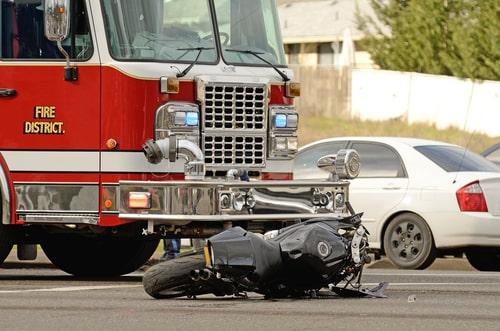 If you ask someone who drives a motorcycle what they like most about the hobby, their face will likely light up as they talk to you about how relaxing and enjoyable the experience is. But unfortunately, while it may be an enjoyable hobby, it is undoubtedly dangerous and not without substantial risk to the rider. As a result, motorcycle accidents are all too common and can result in severe injuries and even wrongful death.
If you ask someone who drives a motorcycle what they like most about the hobby, their face will likely light up as they talk to you about how relaxing and enjoyable the experience is. But unfortunately, while it may be an enjoyable hobby, it is undoubtedly dangerous and not without substantial risk to the rider. As a result, motorcycle accidents are all too common and can result in severe injuries and even wrongful death.
Something that makes motorcycle riding especially dangerous is that it really does not matter how skilled the rider is. In most situations, the greatest threat to someone on a motorcycle is the other motorists on the road. If you or someone you love has been injured or even killed while riding their motorcycle, contacting a highly knowledgeable attorney is a wise decision so that compensation may be pursued to the fullest extent of the law.
What Are the Most Common Christmas-Related Injuries?
C Christmas is right around the corner, and before we know it, family and friends will be coming over to celebrate the holiday. Unfortunately, while it may be the most wonderful time of the year for some, for others, the holidays can be when suffering personal injuries are all too common. Whether it be getting in a car accident while in a shopping center, getting injured while using a defective Christmas gift, or slipping and falling on ice at a Christmas tree farm or in the store, injuries can happen when we least expect them.
Christmas is right around the corner, and before we know it, family and friends will be coming over to celebrate the holiday. Unfortunately, while it may be the most wonderful time of the year for some, for others, the holidays can be when suffering personal injuries are all too common. Whether it be getting in a car accident while in a shopping center, getting injured while using a defective Christmas gift, or slipping and falling on ice at a Christmas tree farm or in the store, injuries can happen when we least expect them.
In any event, if you believe you experienced an injury due to the carelessness of another, do not hesitate to contact an experienced personal injury attorney who will inform you of your rights and fight to get you compensation for the injuries that you may be entitled to.
Common Christmas Injuries
My Loved One Suffered a Wrongful Death. What Should I Do?
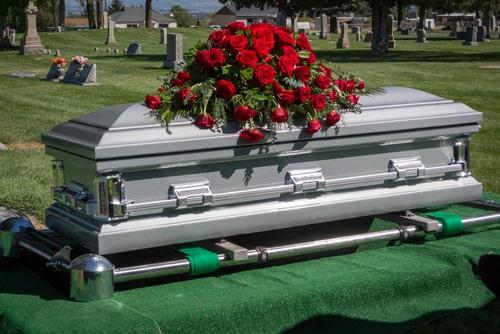 Few things are more emotionally devastating than losing a loved one. While losing a loved one is always tragic, the situation becomes even more tragic when that person dies because of someone else’s negligence. In the aftermath of a loved one dying, so much must be figured out. While this is a time of mourning, it must also be a time of action if you have reason to believe your loved one died a wrongful death.
Few things are more emotionally devastating than losing a loved one. While losing a loved one is always tragic, the situation becomes even more tragic when that person dies because of someone else’s negligence. In the aftermath of a loved one dying, so much must be figured out. While this is a time of mourning, it must also be a time of action if you have reason to believe your loved one died a wrongful death.
If your loved one died a wrongful death, it could be easy to feel alone and isolated. Your loved one is gone, and nothing will bring them back. However, it is essential to know that you are not alone in this time of unbearable sadness. If your loved one died wrongfully, contact a wrongful death attorney who will protect your rights and fight for the most favorable outcome possible in your case.
What is a Wrongful Death, and What Situations Do They Occur In?
Criminal Charges and Car Accident Injury Cases
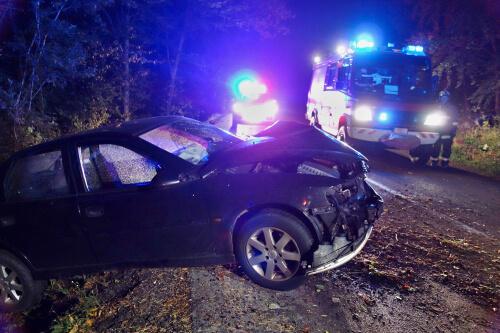 Glenview police recently announced that they had arrested and were charging a 55-year-old woman with reckless homicide, speeding more than 35 mph over the speed limit, failure to reduce speed to avoid an accident, driving too fast for conditions, and following too closely nearly eight months after a March 19 six-vehicle accident that left one man dead. The woman was driving her vehicle southbound on Milwaukee Avenue too fast on wet pavement when her vehicle struck the car of the 73-year-old man, who was killed, and triggered the six-vehicle crash.
Glenview police recently announced that they had arrested and were charging a 55-year-old woman with reckless homicide, speeding more than 35 mph over the speed limit, failure to reduce speed to avoid an accident, driving too fast for conditions, and following too closely nearly eight months after a March 19 six-vehicle accident that left one man dead. The woman was driving her vehicle southbound on Milwaukee Avenue too fast on wet pavement when her vehicle struck the car of the 73-year-old man, who was killed, and triggered the six-vehicle crash.
For people who have been involved in motor vehicle accidents, criminal charges against negligent parties are welcome news but in the end, they may not do much to help people suffering after crashes. A prosecutor handling a criminal case is more concerned with getting convictions than any kind of restitution for people affected by the crash, so civil personal injury cases are usually the best hope most people have.
Causes and Types of Different Bus Accidents in Glenview, IL
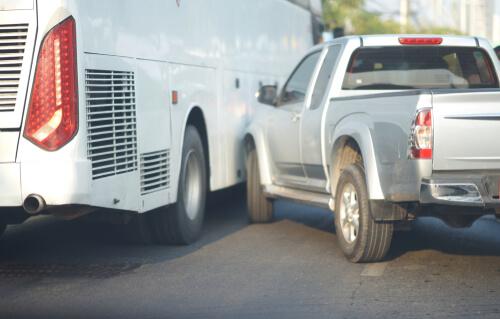 Buses are a common mode of transportation, and they are particularly common in Illinois where thousands of people every day rely on charter buses, public transportation buses, and school buses. Unfortunately, there are far too many bus accidents on the roads and in the streets of America.
Buses are a common mode of transportation, and they are particularly common in Illinois where thousands of people every day rely on charter buses, public transportation buses, and school buses. Unfortunately, there are far too many bus accidents on the roads and in the streets of America.
Our legal professionals are aware of the difficulties bus accident victims face, particularly those harmed in rail or bus incidents that involve fast travel. If you or someone you know has been involved in a bus accident, you need guidance and experience from a trusted bus accident attorney dedicated to ensuring you get the best outcome in your case.
Reasons for Bus Accidents
Buses provide a particularly serious threat to both passengers and other road users due to their massive size. Bus accidents are frequently brought on by:
-
Fatigued drivers
What You Should Know About Motorcycle Accidents in Cook County
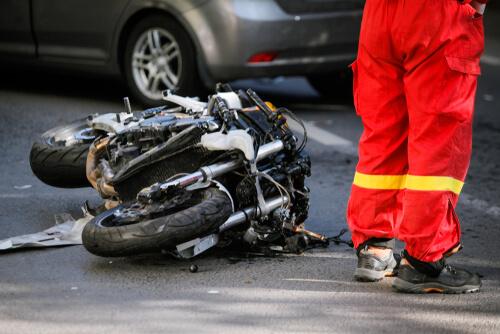 The path to a complete physical recovery might be challenging for anybody hurt in a motorcycle accident. Medical costs and other damages can mount in the interim - costs that, if someone else's conduct led to your disaster, you should not be required to cover. At Gruzmark Law, Ltd., we have a proven track record of victory in injury claims resulting from motorcycle accidents in Northern Illinois, and we are aware of what it takes to achieve success.
The path to a complete physical recovery might be challenging for anybody hurt in a motorcycle accident. Medical costs and other damages can mount in the interim - costs that, if someone else's conduct led to your disaster, you should not be required to cover. At Gruzmark Law, Ltd., we have a proven track record of victory in injury claims resulting from motorcycle accidents in Northern Illinois, and we are aware of what it takes to achieve success.
How Long Do I Have to File a Case After I Was Involved in a Motorcycle Accident?
The typical statute of limitations in Illinois is two years from the date of the motorcycle accident. The Illinois Statute of Limitations governs this time frame. The statute of limitations is not absolute, as is the case with many laws.
A case's deadline could be extended if:
-
When the accident occurred, you were under the age of 18
Auto Accidents Resulting in Severe Burn Injuries
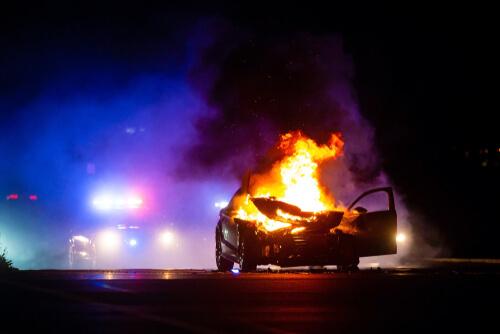 Severe burns from car accidents are some of the most devastating injuries that a person can suffer. Not only do they cause excruciating pain, but they also often lead to disfigurement and disability. Burn victims often need significant medical intervention, including surgery and rehabilitative care. Many deal with debilitating psychological problems after a disfiguring burn injury - especially if the burn is in a highly visible area like the face.
Severe burns from car accidents are some of the most devastating injuries that a person can suffer. Not only do they cause excruciating pain, but they also often lead to disfigurement and disability. Burn victims often need significant medical intervention, including surgery and rehabilitative care. Many deal with debilitating psychological problems after a disfiguring burn injury - especially if the burn is in a highly visible area like the face.
Car crash victims who suffer burn injuries may be entitled to financial compensation for their medical needs, lost income, and other damages. If you or a loved one has been burned in a car accident, contact a qualified personal injury attorney to discuss your legal options.
Liability Parties in a Burn Injury Case
Serious car accidents can often lead to fires and explosions - especially if one of the vehicles was carrying flammable materials. Chemical burns may result from corrosive gasses and liquids spilled by a commercial truck in a collision. Airbags are often the cause of chemical burns to the face and neck.
Taking Legal Action After a Fall Accident Involving an Elderly Individual
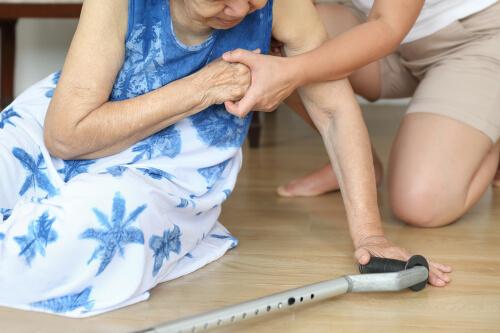 When young children are learning to walk, they fall down constantly. Usually, these falls result in little more than a bump or bruise. Unfortunately, as we age, our bodies become less resilient and the dangers of falling increase substantially. Elderly people who fall may suffer from hip fractures and other broken bones, concussions, spine injuries, or other severe injuries. Fall-related injuries often have a profound impact on an elderly person's life, both physically and psychologically. The CDC reports that many people who fall become afraid of falling again, which prompts them to become less active and avoid enjoyable activities. This reduces strength and balance and increases the chances of falling again. If you have an elderly loved one who has been injured in a fall, you may be able to take legal action against the party responsible for his or her fall injuries.
When young children are learning to walk, they fall down constantly. Usually, these falls result in little more than a bump or bruise. Unfortunately, as we age, our bodies become less resilient and the dangers of falling increase substantially. Elderly people who fall may suffer from hip fractures and other broken bones, concussions, spine injuries, or other severe injuries. Fall-related injuries often have a profound impact on an elderly person's life, both physically and psychologically. The CDC reports that many people who fall become afraid of falling again, which prompts them to become less active and avoid enjoyable activities. This reduces strength and balance and increases the chances of falling again. If you have an elderly loved one who has been injured in a fall, you may be able to take legal action against the party responsible for his or her fall injuries.
Legal Options Parents Have After the Unintentional Death of a Child
 Last month, the governor of Illinois signed the Family Bereavement Leave Act. This new law amends the Child Bereavement Leave Act (CBLA) and expands the scope of unpaid bereavement leave that is available to Illinois workers. This new law will go into effect on January 1, 2023.
Last month, the governor of Illinois signed the Family Bereavement Leave Act. This new law amends the Child Bereavement Leave Act (CBLA) and expands the scope of unpaid bereavement leave that is available to Illinois workers. This new law will go into effect on January 1, 2023.
The previous law only covered the loss of a child or stepchild. Under the new law, however, a two-week, unpaid bereavement leave extends to employees who have experienced a stillbirth, pregnancy loss, and a number of other types of losses.
Unintentional Acts
According to the Centers for Disease Control (CDC), the leading cause of death for individuals between the ages of 1 and 24 is unintentional injuries. One in five child deaths is a result of unintentional injury.
The most common types of incidents causing child deaths from unintentional injuries include:
Even a Minor Rear-End Crash Can Cause Major Injuries
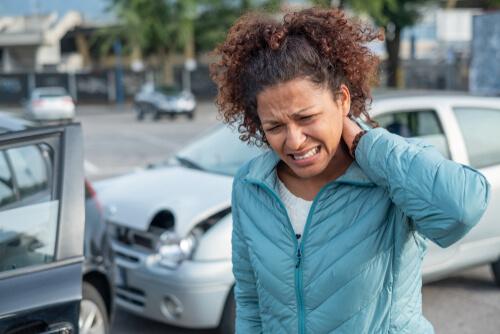 Rear-end crashes are one of the most common car accidents that occur. Although many of these types of crashes are considered “minor,” the reality is that the injuries that victims suffer in these accidents can result in long-term or even permanent medical issues.
Rear-end crashes are one of the most common car accidents that occur. Although many of these types of crashes are considered “minor,” the reality is that the injuries that victims suffer in these accidents can result in long-term or even permanent medical issues.
Common Causes of Rear-End Crashes
In the majority of rear-end accidents, the incidents were preventable and would not have occurred if the driver in the rear had not engaged in some kind of negligent or reckless driving behavior. The most common acts include:
-
Distracted driving, including texting or talking on the phone, setting the GPS, fiddling with the radio, talking to a passenger, or eating and drinking
-
Driver fatigue
-
Speeding
-
Tailgating






